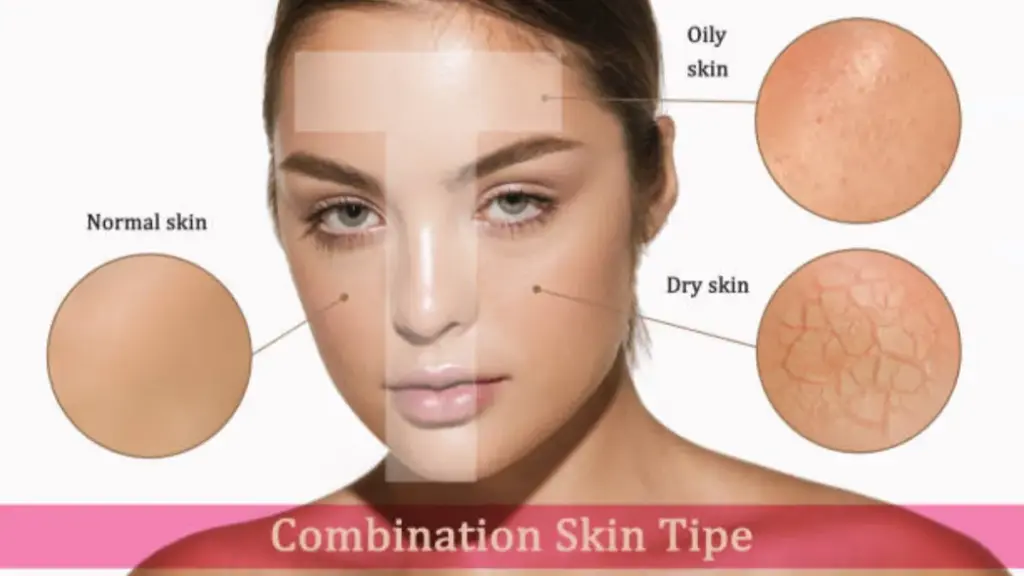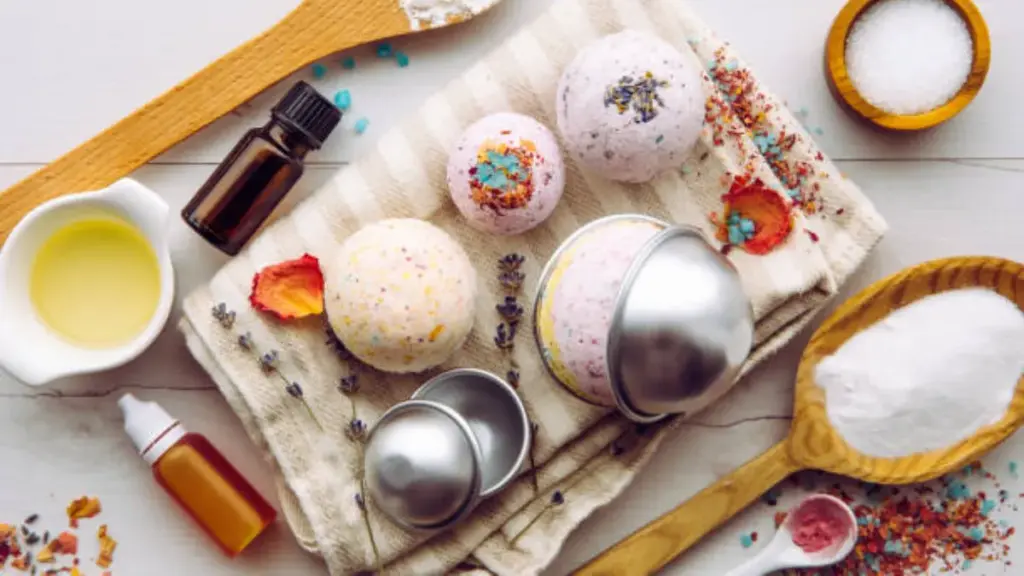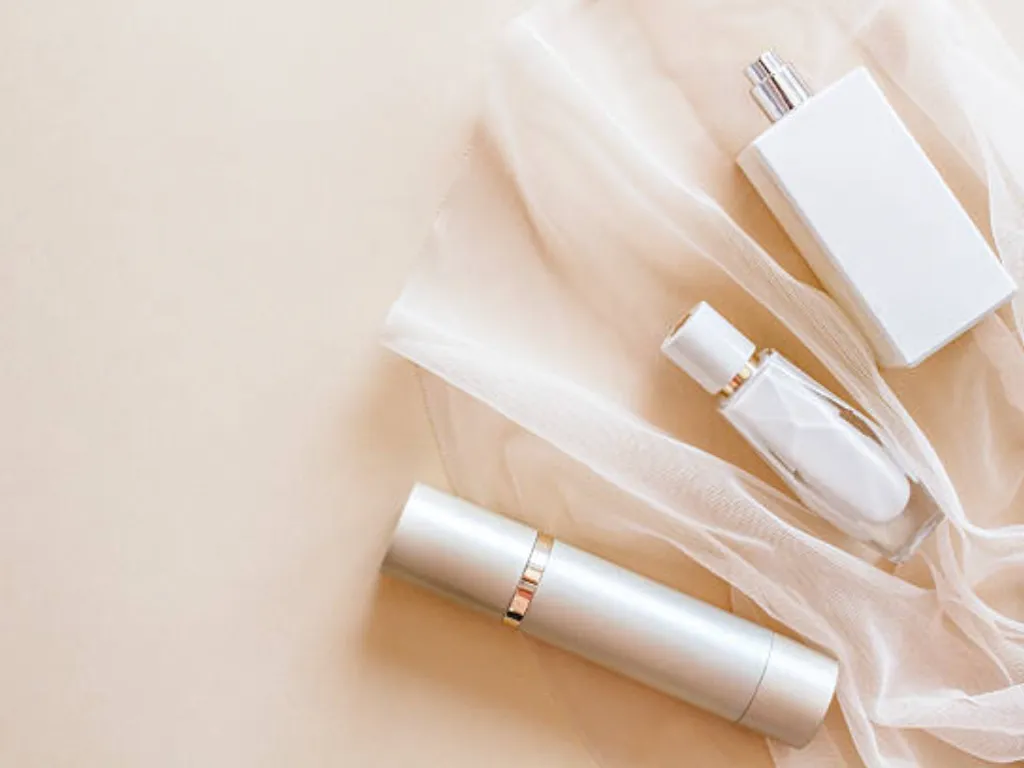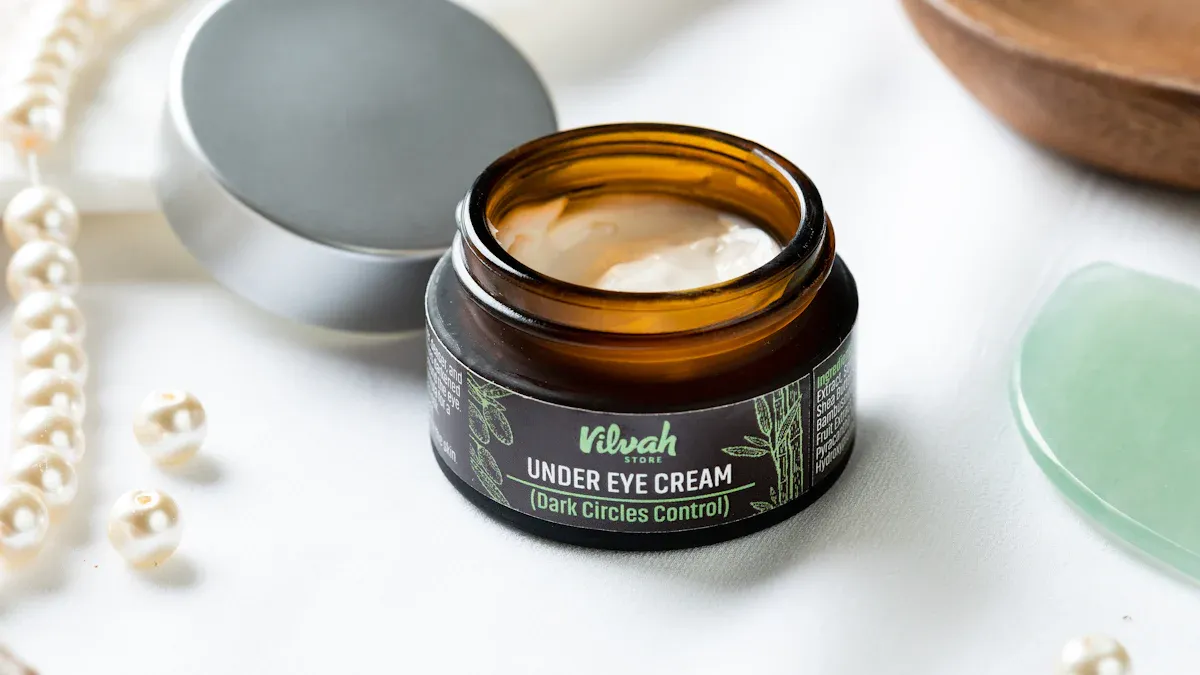
The anti-aging skincare market is booming, and you’re probably noticing it everywhere. By 2025, this growing market is expected to reach USD 51.14 billion, up from USD 48.20 billion in 2024. That’s not all—the overall skincare market is set to hit $151.3 billion, showing impressive growth. Why? People are more focused on protective and preventative skin care, aiming to fight premature skin aging before it starts.
You’ve likely heard about antioxidants and their skin-enhancing benefits. These ingredients, along with effective skincare solutions, are driving sales of anti-aging products. Whether it’s creams that target wrinkles or serums packed with science-backed formulas, consumers are searching for ways to keep their skin looking youthful. Brands that innovate and adapt to these demands will thrive in this competitive market.
Consumer Demographics in the Growing Market
Millennials and Their Focus on Preventative Skincare
Millennials are leading the charge when it comes to preventative skincare. If you’re part of this group, you probably know how important it is to start early. Instead of waiting for wrinkles to appear, millennials focus on protecting their skin from damage. Products like SPF-infused moisturizers and antioxidant-rich serums are staples in their routines. Social media plays a big role here. Platforms like Instagram and TikTok constantly highlight the importance of glowing, youthful skin, encouraging millennials to invest in skincare that prevents aging signs.
This generation also values clean beauty. They’re drawn to products with natural ingredients and eco-friendly packaging. If a brand can combine sustainability with effective skincare, it’s likely to win over millennial consumers.
Baby Boomers and Their Preference for Restorative Solutions
Baby boomers are a driving force in the silver beauty market. Unlike millennials, they focus on restoring mature skin rather than preventing damage. If you’re a boomer, you might prefer products that target wrinkles, fine lines, and age spots. This generation isn’t afraid to spend on high-quality skincare or even aesthetic treatments.
Boomers often seek comprehensive solutions. They’re willing to undergo multiple treatments in one session to rejuvenate their skin. Cost isn’t a major concern for them; instead, they prioritize results. This makes them a key demographic in the growing market for restorative skincare solutions.
Gen X as a Bridge Between Generational Needs
Gen X sits right in the middle, bridging the gap between millennials and boomers. If you’re part of this group, you likely focus on maintaining overall skin health while addressing early signs of aging. Hydration and anti-aging treatments are top priorities for Gen X consumers.
This generation also values personalized skincare. They want products and services tailored to their unique needs. Whether it’s a custom serum or a targeted treatment plan, Gen X appreciates solutions that empower them to take control of their skincare journey.
Spending Habits and Investment in Quality Skincare
When it comes to skincare, you probably know that quality matters. Consumers today are willing to spend more on products that deliver real results. Whether it’s a targeted anti-aging serum or a moisturizer designed for mature skin, people are investing in solutions that meet their specific needs.
The growing market for skincare products reflects this shift. You’ve likely noticed how brands are focusing on science-backed formulas and personalized solutions. This isn’t just a trend—it’s a response to what consumers want. For example:
The demand for anti-aging serums, moisturizers, and sunscreen is rising as informed consumers seek targeted solutions.
59% of shoppers prefer natural or organic skincare products, showing a clear interest in clean and transparent ingredient lists.
Over half of consumers (52%) actively look for products with recognizable ingredients, emphasizing the importance of transparency.
If you’re someone who values quality, you’re not alone. Many consumers prioritize premium skincare because they see it as an investment in their long-term skin health. This is especially true in the silver beauty market, where mature skin requires restorative solutions. Products that address wrinkles, fine lines, and age spots are in high demand.
You might also notice that spending habits vary across generations. Millennials often focus on preventative care, while Gen X and baby boomers lean toward restorative treatments. Regardless of age, one thing is clear: people are willing to pay for skincare that works.
So, what does this mean for brands? It’s simple. If they want to thrive in this competitive market, they need to offer high-quality products with transparent formulations. After all, consumers are smarter than ever, and they’re looking for skincare that delivers on its promises.
Trends Shaping the Anti-Aging Skincare Market
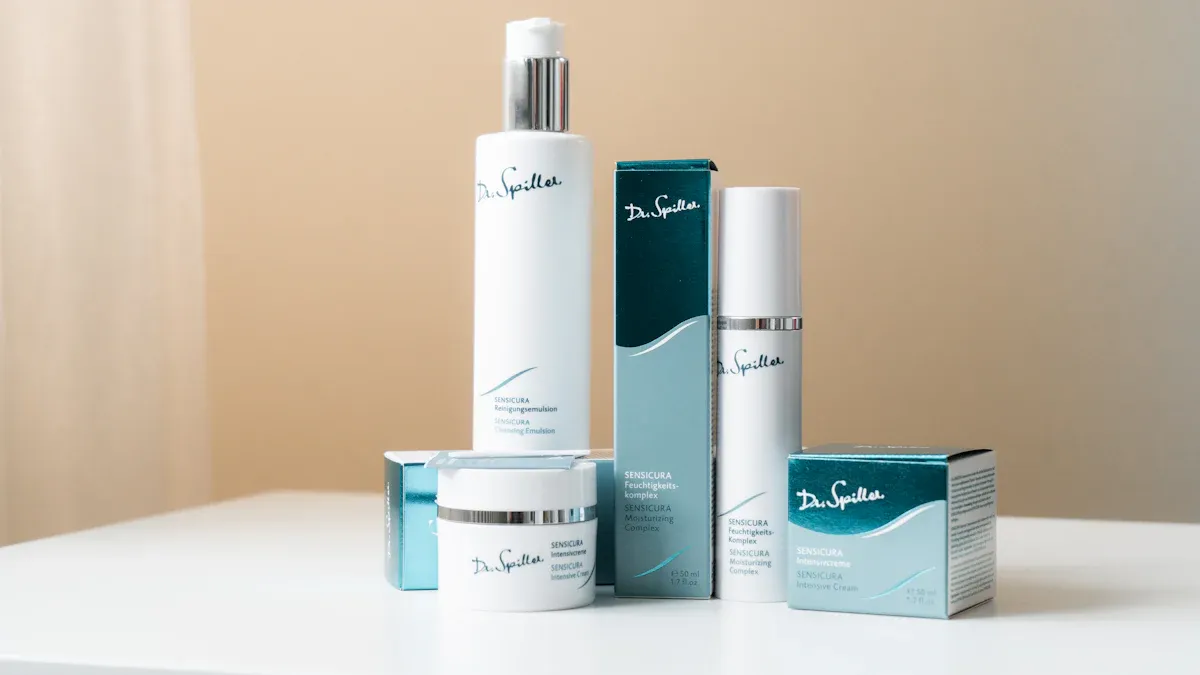
SPF Protection and Sun Care as Essential Features
If you’re serious about anti-aging, sunscreen isn’t just an option—it’s a must-have. Protecting your skin from harmful UV rays is one of the most effective ways to prevent wrinkles and other signs of aging. Studies show that daily sunscreen use can even reverse visible signs of aging over time. For example, a two-year study comparing sunscreen to a placebo found that sunscreen significantly reduced solar elastosis, a key marker of photoaging.
Study Description | Findings | Significance |
|---|---|---|
Comparison of sunscreen vs placebo | Higher levels of solar elastosis in placebo group after 2 years | Indicates sunscreen prevents photoaging |
Daily vs discretionary sunscreen use | No detectable increase in skin aging in daily use group over 4.5 years | Supports daily sunscreen use for anti-aging |
Daily sunscreen use for a year | May reverse visible signs of aging | Suggests long-term benefits of sunscreen |
You might think sunscreen is just for sunny days, but UV rays can damage your skin year-round. That’s why many anti-aging skincare products now include SPF as a standard feature. These products not only protect your skin but also simplify your routine by combining sun care with hydration or anti-aging benefits.
Whether you’re using a moisturizer with SPF or a dedicated sunscreen, you’re taking a big step toward preserving your skin’s youthful glow.
Sustainability and Eco-Friendly Packaging
You’ve probably noticed that more beauty brands are switching to sustainable practices, and for good reason. Consumers like you are demanding eco-friendly options, and the anti-aging skincare market is responding. Packaging plays a huge role here. Glass containers, for instance, are not only recyclable but also preserve the efficacy of active ingredients in anti-aging products.
Packaging Type | Benefits |
|---|---|
Glass Containers | High stability, non-reactive, preserves efficacy of active compounds |
Biodegradable Packaging | Rising demand, aligns with clean beauty practices |
Biodegradable packaging is another game-changer. It aligns perfectly with the clean beauty movement, which prioritizes natural and organic ingredients. By choosing products with sustainable packaging, you’re not just caring for your skin—you’re also helping the planet.
Brands that embrace sustainability are gaining a competitive edge. They’re appealing to environmentally conscious consumers who want their skincare routines to reflect their values. So, the next time you shop for anti-aging products, look for packaging that’s as kind to the Earth as it is to your skin.
Clean Beauty and Natural Ingredients
Clean beauty isn’t just a trend—it’s a movement. More and more people are choosing products made with natural and organic ingredients, and you’re probably one of them. In fact, 63% of consumers say clean beauty is extremely or very important when selecting cosmetics. But here’s the thing: effectiveness still matters. Almost half of U.S. consumers who use clean products insist that they must deliver results.
63% of consumers deem clean beauty as ‘extremely or very important’ when selecting cosmetics, indicating a strong preference for environmentally conscious brands.
Almost half of US consumers who already use clean products insist that effectiveness remains a priority for them, showing that consumers value both clean ingredients and product performance.
Ingredient sourcing is a concern for almost 60% of shoppers in Germany, linking sustainability to purchasing decisions.
When it comes to anti-aging skincare, clean beauty products often feature plant-based extracts, antioxidants, and other natural ingredients that target wrinkles and improve skin health. These formulations are gentle on mature skin while delivering powerful results. By choosing clean beauty, you’re not just investing in your skin—you’re supporting a healthier, more sustainable future for the beauty industry.
High-Performance Products Backed by Science
When it comes to anti-aging skincare, you want products that deliver real results. High-performance products backed by science are leading the charge in the beauty market. These products combine cutting-edge research with powerful ingredients to target wrinkles, improve skin elasticity, and enhance your overall complexion.
You’ve probably noticed claims like “reduces fine lines” or “brightens dull skin” on product labels. But how do you know they work? Scientific studies and performance metrics provide the proof. For example, here’s what users have reported after using high-performance skincare products:
Performance Metric | Percentage |
|---|---|
Dull skin appears brighter | |
Skin appears healthier | 89% |
Complexion looks plump and replenished | 87% |
Increased collagen production | 30% |
Improved skin elasticity | 19.6% |
Reduction in wrinkles | 11.6% |
Increased skin luminosity | 11.1% |
These numbers highlight why high-performance products are worth the investment. Imagine using a serum that not only brightens your skin but also boosts collagen production and reduces wrinkles. That’s the kind of science-backed innovation driving the anti-aging skincare market forward.
What makes these products so effective? It’s all about the ingredients. Many formulas feature peptides, retinol, and antioxidants that work together to rejuvenate mature skin. These active compounds penetrate deep into your skin, targeting aging at its source.
If you’re looking for results, choose products backed by research. They’re designed to deliver visible improvements, helping you maintain a youthful glow while addressing specific concerns like wrinkles and elasticity.
Inclusivity in Skincare for Diverse Skin Types
The beauty industry is evolving, and inclusivity is at the heart of this transformation. You’ve probably seen brands expanding their product lines to cater to diverse skin types. This shift isn’t just about marketing—it’s about meeting the needs of every consumer, regardless of their skin tone or type.
Take Fenty Beauty, for example. When it launched in 2017, it introduced a wide range of shades, challenging traditional beauty norms. This move set a new standard for inclusivity, inspiring other brands like Maybelline and L’Oreal to follow suit. Today, you’ll find more options than ever, whether you’re shopping for cosmetics or skincare products.
Why does inclusivity matter? It ensures that everyone can find products tailored to their unique needs. For instance, anti-aging skincare for darker skin tones often focuses on hyperpigmentation and uneven texture, while products for lighter skin may prioritize redness reduction. By addressing these differences, brands can create solutions that truly work for all.
Inclusivity isn’t just about shade ranges. It also extends to the technology behind skincare products. Studies show that many AI models used in product development often overlook certain skin types. To fix this, researchers recommend techniques like resampling and cost-sensitive learning to improve accuracy across all demographics.
Tip: When choosing skincare, look for brands that prioritize inclusivity. They’re more likely to offer products designed for your specific skin type, ensuring better results and a more personalized experience.
The silver beauty market is also embracing inclusivity. Mature skin comes in all tones and textures, and brands are developing solutions that cater to this diversity. Whether you’re looking for anti-aging serums or restorative creams, inclusivity ensures that you’ll find products that meet your needs.
By supporting inclusive brands, you’re not just investing in your skin—you’re helping to shape a more equitable beauty industry.
Opportunities for Brands in the Anti-Aging Market
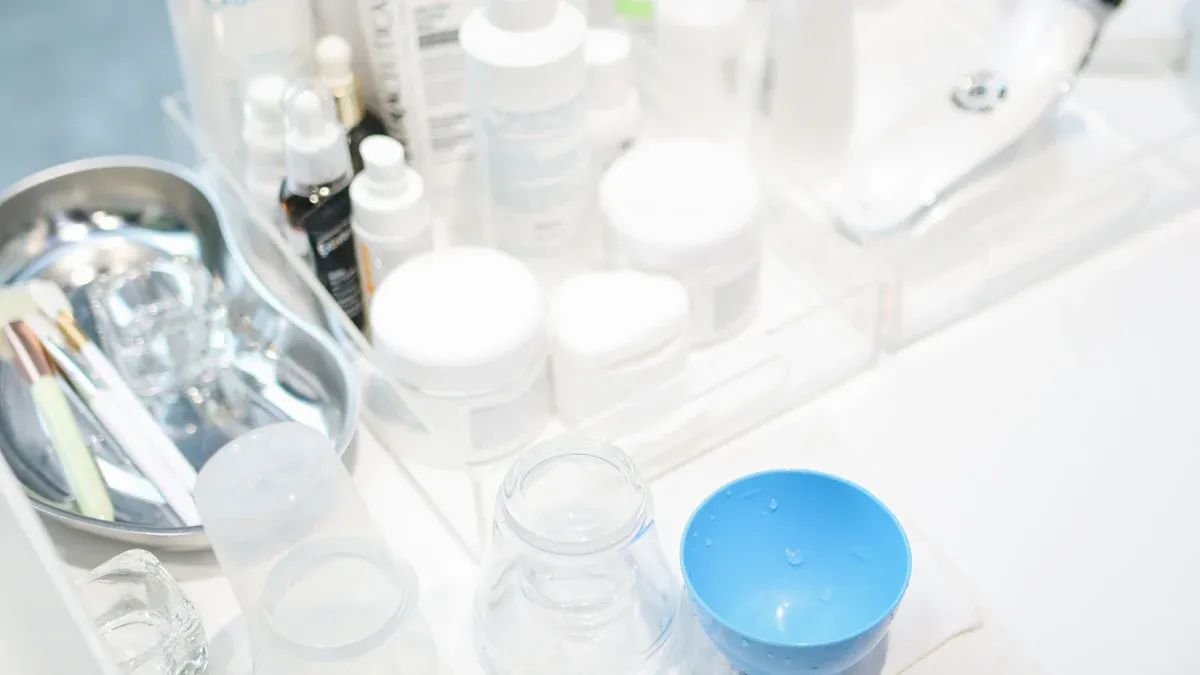
Leveraging AI for Personalized Skincare Solutions
Imagine walking into a store or visiting a website and instantly receiving skincare recommendations tailored to your unique needs. That’s the power of AI in the beauty industry. AI tools can analyze your skin’s condition—spots, wrinkles, moisture levels, and more—within seconds. These tools don’t just stop there. They also consider environmental factors like humidity and pollution, as well as your lifestyle habits, to create a truly personalized skincare experience.
The numbers speak for themselves. The market for AI in beauty was valued at $3.27 billion in 2023 and is expected to skyrocket to $16.4 billion by 2033, growing at an impressive CAGR of 19.8%. This growth highlights how much consumers value customized solutions. By leveraging AI, brands can offer skincare products tailored to individual needs, making it easier for you to find what works best for your skin.
Tip: Look for brands that use AI-driven tools to recommend products. These tools ensure you’re not wasting money on skincare that doesn’t suit your skin type or concerns.
For brands, this is a golden opportunity. By investing in AI technology, they can not only enhance customer satisfaction but also build long-term loyalty. Personalized skincare is no longer a luxury—it’s becoming the standard.
Building Consumer Trust Through Transparency
When it comes to skincare, trust is everything. You want to know exactly what you’re putting on your skin, right? That’s why transparency is such a big deal in the beauty industry. Over half of women actively seek products with organic ingredients, and 46% avoid those containing sulfates, phthalates, or gluten. This shows a clear preference for brands that are upfront about their formulations.
Evidence | Description |
|---|---|
Over half of women | Hunt for skincare products featuring organic ingredients. |
46% of women | Avoid products with sulfates, phthalates, and gluten. |
Consumer spending power | Supports brands committed to natural ingredients and transparency. |
Transparency isn’t just about listing ingredients. It’s about having an open conversation with consumers. You want to feel confident that the products you’re using are safe, effective, and ethically made. Brands that embrace this approach are winning over consumers who value honesty and integrity.
Note: Next time you shop for skincare, check the ingredient list and look for certifications like “organic” or “cruelty-free.” These labels often indicate a brand’s commitment to transparency.
For brands, being transparent isn’t just good ethics—it’s good business. Consumers are using their spending power to support companies that align with their values. By prioritizing transparency, brands can build stronger relationships with their audience and stand out in a crowded market.
Expanding Product Lines for Specific Skin Concerns
Your skin is unique, and your skincare routine should reflect that. More and more consumers are moving away from generic products and opting for customized solutions that address specific concerns like rosacea, eczema, or acne. This shift has created a massive opportunity for brands to expand their product lines.
The personalized skincare market is projected to grow from $30.63 billion in 2024 to $66.37 billion by 2034, with a CAGR of 8.04%. This growth is fueled by increasing awareness of skin health and the influence of social media, which encourages consumers to invest in tailored skincare routines.
Consumers are demanding cruelty-free and sustainable formulations.
There’s a rising preference for natural and organic ingredients.
Social media trends are driving interest in customized skincare solutions.
By offering products that cater to specific skin concerns, brands can tap into this growing demand. For example, the silver beauty market is seeing a surge in anti-aging products designed for mature skin. These products often focus on issues like wrinkles, fine lines, and uneven texture, providing targeted solutions for aging skin.
Tip: If you’re dealing with a specific skin concern, look for brands that specialize in customized skincare. They’re more likely to offer effective solutions tailored to your needs.
For brands, the message is clear: expand your offerings to meet the diverse needs of your audience. Whether it’s a serum for sensitive skin or a moisturizer for mature skin, addressing specific concerns can help brands build a loyal customer base.
Educating Consumers Through Marketing Campaigns
You’ve probably noticed how some brands seem to know exactly what you need. That’s no accident—it’s the result of smart marketing campaigns that educate consumers like you. When brands take the time to explain how their products work and why they’re effective, it builds trust and helps you make informed decisions.
Take real-world case studies, for example. They show how companies innovate and reposition themselves to meet your needs. These stories aren’t just interesting—they’re proof that educating consumers works. Brands that focus on teaching you about their products often see measurable results, like increased sales and better brand perception.
Case Study | Description |
|---|---|
Marketing Education | Real-world examples show how companies innovate and adapt to consumer needs. |
Effectiveness of Strategies | Consumer education leads to higher sales and improved brand trust. |
Marketing campaigns that educate you also make it easier to understand complex products, like personalized skincare solutions. Imagine a video that explains how a serum targets wrinkles or a blog post that breaks down the benefits of natural ingredients. These efforts don’t just sell products—they empower you to choose what’s best for your skin.
If you’re curious about how brands do this, check out resources like 10 Marketing Case Study Examples: Learn How to Master Them in Your Campaigns. They highlight how education-focused strategies can transform the way you shop for skincare products tailored to your needs.
Tip: Look for brands that prioritize education in their marketing. They’re more likely to offer products that align with your skincare goals.
Collaborating with Experts to Enhance Product Credibility
When it comes to skincare, you want products you can trust. That’s where expert collaborations come in. Brands that work with dermatologists, scientists, and other professionals create products backed by research and proven to deliver results.
The anti-aging market is growing fast, with a projected value of USD 122.9 billion by 2033. But with so many options, it’s easy to feel overwhelmed. Collaborations with experts help cut through the noise. They ensure that the products you’re using are not only safe but also effective.
Market Size in 2024: USD 75.7 billion
Forecast for 2033: USD 122.9 billion
Growth Rate (2025-2033): 5.5%
These partnerships also address common challenges, like consumer skepticism. You’ve probably wondered if a product will actually work before buying it. When a brand collaborates with experts, it adds credibility and reassures you that the product has been thoroughly tested.
For example, the silver beauty market benefits greatly from expert input. Products designed for mature skin often focus on specific concerns like wrinkles and elasticity. By involving professionals in the development process, brands can create customized solutions that truly meet your needs.
Note: Next time you shop for skincare, check if the brand collaborates with experts. It’s a good sign that the product is worth your investment.
These collaborations also open the door to innovation. Experts bring new ideas and technologies to the table, helping brands develop personalized skincare solutions that stand out. Whether it’s a serum for sensitive skin or a moisturizer for mature skin, expert-backed products are a win for everyone.
Oully’s Role in Supporting the Growing Market
Custom Formulation and Packaging Design for Anti-Aging Products
When it comes to anti-aging skincare, you want products that stand out. That’s where Oully shines. With over a decade of experience, Oully specializes in creating custom formulations tailored to your brand’s vision. Whether you’re looking for serums packed with powerful ingredients like peptides or creams designed to hydrate and restore, Oully has the expertise to bring your ideas to life.
Packaging matters just as much as the product inside. Oully offers innovative packaging designs that not only look stunning but also protect the integrity of active ingredients. Imagine sleek glass containers that preserve your product’s efficacy while appealing to eco-conscious consumers. By combining creativity with functionality, Oully helps your brand make a lasting impression in the beauty market.
Commitment to Sustainable Practices in Manufacturing
Sustainability isn’t just a buzzword—it’s a necessity. Oully understands this and has made it a core part of its manufacturing process. The company uses advanced sustainability metrics to evaluate its economic, environmental, and social impact. These metrics, like the product sustainability index (ProdSI) and process sustainability index (ProcSI), ensure that every step of production adds sustainable value.
By choosing Oully, you’re aligning with a partner that prioritizes eco-friendly practices. From sourcing natural ingredients to minimizing waste, Oully’s commitment to sustainability helps your brand meet the growing demand for green beauty products. This approach not only benefits the planet but also resonates with consumers who value ethical skincare solutions.
End-to-End Support for Beauty Brands
Launching a skincare line can feel overwhelming, but Oully makes it simple. The company offers end-to-end support, guiding you through every stage of the process. From initial concept development to final production, Oully ensures your products meet the highest standards of quality and innovation.
You’ll also appreciate their flexibility. With low minimum order quantities and a fast 112-day production turnaround, Oully caters to brands of all sizes. Whether you’re entering the silver beauty market or expanding your existing line, Oully’s comprehensive services help you succeed.
By partnering with Oully, you gain more than a manufacturer—you gain a trusted ally in the competitive beauty industry.
Leveraging Oully’s Expertise to Meet Consumer Demands
When it comes to meeting the ever-changing needs of the beauty industry, Oully knows how to deliver. You’ve probably noticed how consumers today demand more than just effective products—they want innovation, sustainability, and personalization. That’s where Oully steps in to help brands like yours thrive.
Oully’s expertise lies in creating solutions that align with what consumers are looking for. Imagine launching a product that not only addresses specific skin concerns but also stands out in the competitive market. With Oully’s custom formulation services, you can develop anti-aging products tailored to your audience. Whether it’s a serum packed with peptides or a moisturizer designed for mature skin, Oully ensures your products deliver results.
You’ll also appreciate how Oully keeps sustainability at the forefront. Consumers in the silver beauty market care about eco-friendly practices, and Oully helps you meet those expectations. From sourcing natural ingredients to offering recyclable packaging, they make it easy for your brand to align with green values. This approach doesn’t just appeal to eco-conscious shoppers—it also builds trust and loyalty.
What sets Oully apart is their ability to adapt to trends. They stay ahead of the curve, helping you create products that resonate with today’s skincare enthusiasts. By partnering with Oully, you’re not just keeping up with consumer demands—you’re exceeding them.
Tip: If you’re looking to grow your brand, consider working with a partner like Oully. Their expertise can help you create products that stand out and win over your audience.
The growing market for anti-aging skincare in 2025 offers exciting opportunities for beauty brands like yours. With consumers increasingly focused on self-care and skin health, the demand for products that address wrinkles and aging concerns is skyrocketing. Mature skin, especially in North America and Europe, is driving this trend, with nearly 60% of consumers aged 40 and above actively seeking solutions for fine lines and elasticity.
To thrive, you need to stay ahead of trends. Innovation is reshaping the beauty industry, from advanced ingredients like retinoids to AI-powered personalization tools. Sustainability matters too. Shoppers want cosmetics that align with their values, such as eco-friendly packaging and ethical sourcing. Inclusivity is equally important, ensuring diverse skin types and concerns are addressed.
By prioritizing these strategies, you can tap into the silver beauty market and build lasting connections with your audience. The future of skincare is bright, and your brand has the chance to lead the way.
FAQ
What is the silver beauty market?
The silver beauty market focuses on skincare and beauty products designed for mature skin. It caters to individuals aged 40 and above, addressing concerns like wrinkles, fine lines, and elasticity. This market is growing rapidly as more people seek effective anti-aging solutions.
How can I choose the right anti-aging product?
Look for products that match your skin type and concerns. Check for active ingredients like retinol or peptides. If possible, opt for brands that offer transparency about their formulations and prioritize sustainability.
Are natural ingredients better for anti-aging?
Natural ingredients can be effective, especially for sensitive skin. However, the best anti-aging products often combine natural extracts with science-backed compounds like retinol or hyaluronic acid. Always check the ingredient list to ensure it meets your needs.
Why is SPF important in anti-aging skincare?
SPF protects your skin from harmful UV rays, which cause premature aging. Daily sunscreen use prevents wrinkles, fine lines, and age spots. Many anti-aging products now include SPF for added convenience.
How do I know if a product is sustainable?
Look for eco-friendly packaging, cruelty-free certifications, and brands that highlight sustainable practices. Many companies now use recyclable materials or biodegradable options to reduce their environmental impact.

